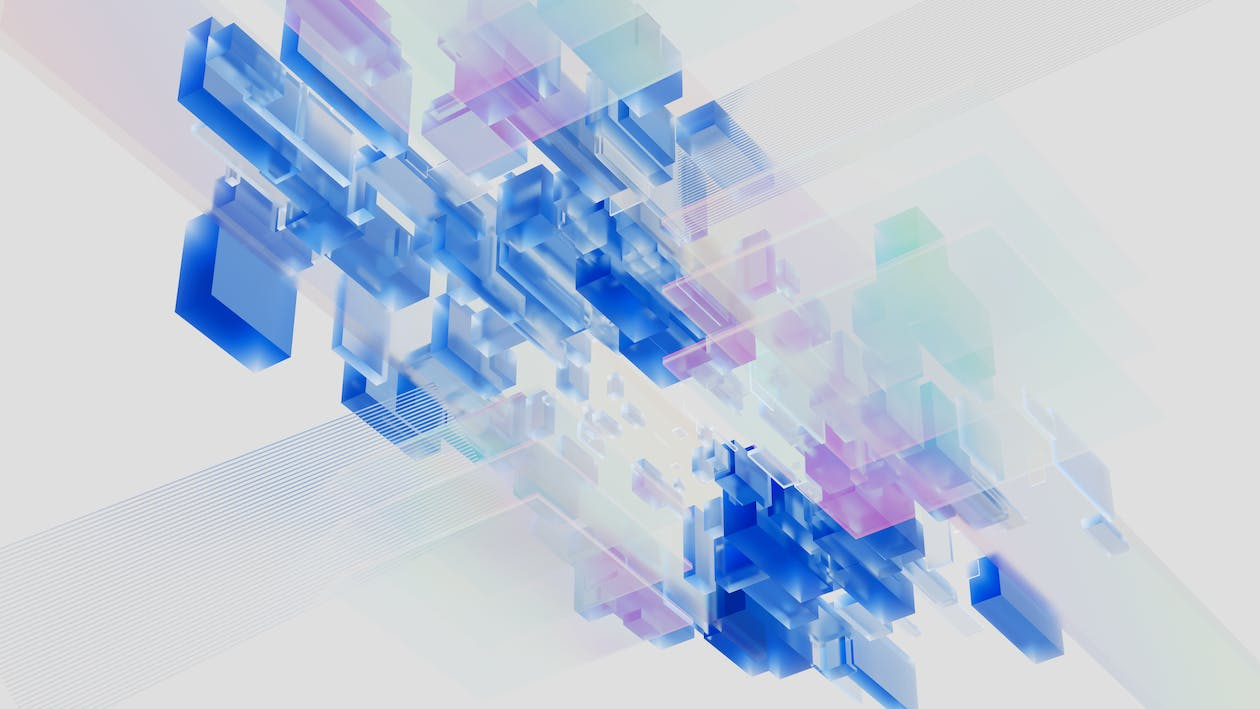Bitcoin
Bitcoin CPI
Venture Portfolio
Funds
Market Insights
Indicators
About
Contact

March 11, 2024





Blockchain and artificial intelligence (AI), two of the most innovative emerging technologies, have different roots but are poised to play essential roles in the future of society.
Read on to learn about the potential of the intersection between Bitcoin, blockchain, and AI and how the merging of these technologies could pave the way for an exciting future.
Blockchain and AI have emerged individually as frontrunners and game-changers in technological innovation. When combined, the two technologies create a powerful synergy capable of reshaping the way different industries interact with technology.
Blockchain presents an advanced security and a transparent infrastructure that allows businesses to build trust in transactions between companies and their customers. Public blockchain transactions are transparent and open, which leaves no room for falsifying data.
When used alongside AI applications, blockchain technology ensures data integrity as it cannot be tampered with unnoticed. Artificial intelligence processes complex data faster and more accurately by detecting patterns that humans might easily overlook.
Blockchain AI has the potential to redefine various sectors by introducing enhanced security, efficiency, and transparency. For example, Bitcoin Lightning Network developer Lightning Labs recently introduced tools to facilitate Bitcoin AI integration. The release allows developers to integrate AI capabilities and leverage the combined benefits of Bitcoin and Lightning.
AI integration in Bitcoin also creates a technological revolution in mining operations where efficiency and optimization are top priorities. The role of AI in Bitcoin mining goes beyond simple automation, extending to algorithm optimization to enhance efficiency, predictive maintenance to prevent potential breakdowns, scheduled timely maintenance, and data analysis.
Combining AI with blockchain technology introduces a transformative synergy that improves efficiency, transparency, and security.
With its ability to analyze large datasets, AI will streamline blockchain's data management by sifting through data quickly, accurately, and efficiently. AI can use its predictive capabilities to identify existing data patterns and detect new insights that blockchain can authenticate, secure, and guarantee data integrity.
It can further strengthen blockchain security features like cryptographic algorithms and decentralization through machine learning by proactively detecting and preventing fraudulent activities within the network.
The transparency of blockchain's public ledger fosters trust among users, as they can understand the system's logic. Collaborating blockchain AI through machine-to-machine interaction allows AI algorithms to coordinate and share information transparently, leading to more trustworthy decisions.
While blockchain's decentralized design makes it highly secure, decentralization almost always leads to scalability and efficiency issues. Integrating AI into blockchain systems can optimize data processing and storage speeds, addressing blockchain technology's scalability challenges.

Blockchain-based systems like Decentralized Finance (DeFi) have disrupted traditional financial systems by enabling users to transact significant amounts of money anonymously without revealing the identity of involved parties. However, cybercriminals can abuse this level of anonymity. Companies can use AI to introduce data analytics and on-chain forensics to combat the issue.
Artificial intelligence leverages its range of technologies, like machine learning algorithms, to analyze data and uncover strange patterns to enhance the effectiveness of forensic investigations. Since AI can analyze transactional data in real-time, Blockchain AI systems can raise red flags about potentially risky transactions and help investigators mitigate threats and take timely action.
Running decentralized applications (DApps) involves users interacting with time-consuming, challenging-to-understand intelligent contracts within blockchain networks. Applying AI's natural language processing capabilities can automate Dapp interactions by analyzing, understanding, and simplifying the text of smart contracts and identifying malicious code or potential vulnerabilities to avoid compromising blockchain networks.
Furthermore, AI offers data-pruning algorithms that can help enhance efficiency and reduce network latency by autonomously shedding unnecessary data from blockchains.
Fusing AI and blockchain will pave the way to more innovative, secure, and efficient networks that can add value to users in different industries.
AI has revolutionized industries and transformed how we live and work by developing intelligent agents that can learn to reason and act independently. However, such rapid advancement comes with great responsibility.
As technology spreads to different aspects of our lives, the integrity and reliability of the data it relies on becomes the overriding factor. Automated computation science is vulnerable to significant risks should unaudited or uncontrolled data find its way into code making, the internet, or into the lives of unsuspecting users.
This is where blockchain technology's immutability and decentralized nature come into play.
AI algorithms rely on data to make accurate predictions, and the accuracy of any outcome is based on the quality and trustworthiness of data inputs. To avoid the negative consequences of flawed insights from biased or unreliable data, developers can leverage blockchain's transparency and immutability to verify the integrity and authenticity of data.
Since AI increasingly relies on personal and sensitive data, employing blockchain's decentralized architecture can safeguard data against manipulation. Unauthorized parties cannot access sensitive data stored on blockchains' distributed ledgers, thereby protecting data privacy and eliminating the risk of data breaches.

The merger of blockchain and AI may still be in its early stages, but it's already impacting numerous industries. The following are among the pioneer AI and blockchain use cases that show the potential of a fantastic future when fully realized:
Blockchain heavily relies on cryptography to secure and verify transactions. However, the amalgamation of AI introduces an additional security layer that can effectively monitor transactions and network activities. Blockchain AI can detect anomalies in real-time and initiate mitigation measures instantly.
Smart contracts, a unique aspect of blockchain, self-execute based on preset code and instructions, making them transparent and autonomous.
Fusing AI and smart contracts will create intelligent contracts that will automatically respond to any change in circumstances, making their output more effective.
AI integration can transform intelligent contracts using the elements of natural language processing (NLP). Artificial intelligence's ability to analyze historical data and use predictive analytics cuts through the code to detect any unforeseen challenges to executing contract conditions.
AI-powered smart contracts would execute tasks and adjust their terms based on performance metrics or real-time data.
Blockchain and AI integration offers enhanced accountability, traceability, and efficiency in supply chain management.
Blockchain-based AI solutions can analyze real-time data in Internet of Things (IoT) devices so shippers can accurately track goods and each stage of the supply chain. Furthermore, AI enables users to optimize routes, predict demand patterns, and improve inventory levels, thereby streamlining the supply chain.
Artificial intelligence can analyze patient data to identify and predict disease patterns and personalize treatment plans.
Blockchain integration means patients own their health records and can safely and securely grant healthcare providers access.
This data interoperability results in seamless data sharing between healthcare stakeholders and prevents unauthorized access while maintaining patient privacy.
Banks and financial institutions can harness the potential of Bitcoin AI to augment their fraud prevention and improve customer experience.
AI analyzes individual customers' transaction patterns, customer behavior, and market trends to detect and prevent fraudulent activities in real-time.
Financial institutions can store these alerts on blockchains to guarantee transparency, build a trustworthy system, prevent duplicate claims, and facilitate secure transactions.
Whether it's faster services, reduced costs, or efficient functionality, blockchain and AI offer immense benefits. Merging the two technologies could create competent systems with superior functionality and intelligent gadgets that promote high-level data acquisition, storage, and use.
Some potential benefits include:
Blockchain is a decentralized public ledger system that records and stores transactions, while AI uses stored data to mimic human intelligence. Both technologies line up data, with blockchain guaranteeing data transparency and integrity, while AI analyzes and interprets data for insights.
Integrating AI into blockchain improves data storage and transaction speeds since AI can accurately read, understand, and correlate data and bring higher intelligence to blockchain networks. Using AI in blockchain will pave the way to more innovative, secure, and efficient networks for users in different industries.
Blockchain can help AI attain better data usage, offer more actionable insights, and create a model for a transparent and trustworthy data economy. Since AI increasingly relies on personal and sensitive data, employing blockchain's decentralized architecture could safeguard data against manipulation.